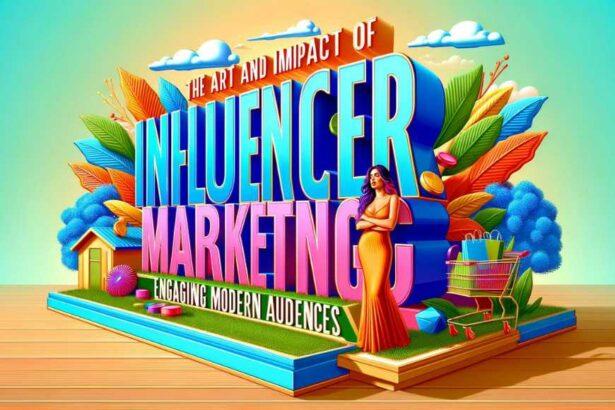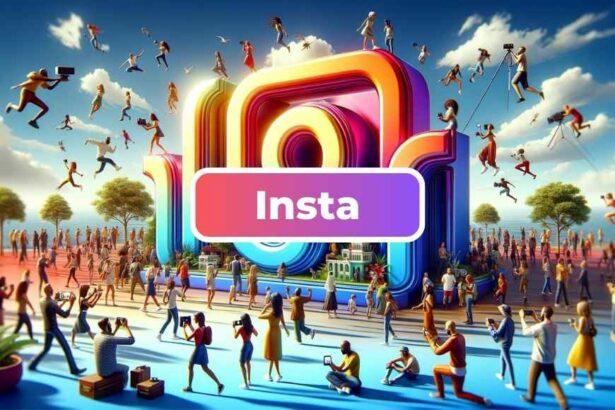Artificial Intelligence (AI) and marketing automation tools are transforming the landscape of digital marketing, creating new opportunities for businesses to engage with customers in more meaningful and efficient ways. The integration of these technologies allows marketers to streamline operations, personalize interactions, and make data-driven decisions, ultimately enhancing the customer experience and driving business growth.
In a world where customer expectations are higher than ever, AI and marketing automation provide the tools needed to meet these demands. From predictive analytics that forecast customer behavior to automated workflows that nurture leads, these technologies offer a level of sophistication and efficiency that was previously unattainable. As we dive deeper into the capabilities and applications of AI and marketing automation, it becomes clear that their impact is profound and far-reaching.
The Evolution of AI in Marketing
Artificial Intelligence has come a long way from its early days of simple algorithms and rule-based systems. Today, AI encompasses machine learning, natural language processing, and advanced analytics, all of which play a critical role in modern marketing strategies.
Predictive Analytics and Customer Insights
One of the most significant benefits of AI in marketing is its ability to predict customer behavior. By analyzing vast amounts of data, AI can identify patterns and trends that humans might overlook. This predictive capability enables marketers to anticipate customer needs and preferences, allowing for more targeted and effective campaigns. For instance, AI can analyze past purchase behavior to recommend products that a customer is likely to buy, enhancing the shopping experience and increasing sales.
In addition to predicting behavior, AI can also provide deep insights into customer demographics, preferences, and pain points. This information is invaluable for creating personalized marketing strategies that resonate with individual customers. By understanding what drives customer decisions, marketers can craft messages that are more likely to convert.
Chatbots and Personalized Customer Interactions
Another transformative application of AI in marketing is the use of chatbots. These AI-powered assistants can handle a wide range of customer interactions, from answering common queries to assisting with purchases. By providing instant responses, chatbots improve customer satisfaction and free up human agents to focus on more complex issues.
Moreover, chatbots can gather data from customer interactions, providing further insights into customer preferences and behavior. This data can then be used to refine marketing strategies and improve customer experiences. For example, a chatbot can learn that a customer frequently inquires about a specific product and can proactively offer related promotions or information in future interactions.
The Power of Marketing Automation
Marketing automation tools are designed to streamline repetitive tasks, allowing marketers to focus on strategy and creative work. These tools can automate email marketing, social media posting, lead nurturing, and more, making it easier to manage large-scale marketing efforts.
Automated Email Campaigns
One of the most popular applications of marketing automation is in email marketing. Automated email campaigns allow marketers to send personalized messages at scale. By segmenting email lists based on customer behavior and preferences, marketers can deliver relevant content that engages recipients and drives conversions.
For example, a customer who abandons a shopping cart can receive an automated reminder email with a discount code, encouraging them to complete the purchase. Similarly, new subscribers can be nurtured with a series of welcome emails that introduce them to the brand and its offerings. These automated campaigns ensure that customers receive timely and relevant communications without requiring manual effort.
Social Media Management
Marketing automation also extends to social media, where it can help manage and schedule posts, track engagement, and analyze performance. With the help of automation tools, marketers can maintain a consistent social media presence and respond to interactions in real-time.
By automating social media tasks, marketers can focus on creating high-quality content and engaging with their audience. Additionally, automation tools can provide insights into which types of content perform best, allowing marketers to refine their strategies and optimize their social media efforts.
Enhancing Customer Experiences with AI and Automation
The ultimate goal of integrating AI and marketing automation is to enhance the customer experience. By leveraging these technologies, businesses can provide more personalized, timely, and relevant interactions that build customer loyalty and drive growth.
Personalization at Scale
Personalization is key to effective marketing, and AI makes it possible to deliver personalized experiences at scale. By analyzing customer data, AI can create detailed profiles that inform marketing strategies. This enables businesses to tailor their messages and offers to individual customers, increasing the likelihood of engagement and conversion.
For example, a retailer can use AI to recommend products based on a customer’s past purchases and browsing history. This level of personalization not only improves the shopping experience but also increases the chances of repeat purchases and customer loyalty.
Efficient Lead Nurturing
Lead nurturing is a critical component of the sales process, and marketing automation tools can significantly enhance its effectiveness. By automating lead nurturing workflows, businesses can ensure that prospects receive the right information at the right time, moving them closer to a purchase decision.
For instance, a potential customer who downloads a whitepaper can be entered into an automated workflow that sends them a series of follow-up emails with additional resources and offers. This targeted approach keeps the prospect engaged and informed, increasing the likelihood of conversion.
Implementing AI and Automation in Your Marketing Strategy
While the benefits of AI and marketing automation are clear, implementing these technologies requires careful planning and execution. Businesses must consider their specific needs and goals to determine the best approach.
Choosing the Right Tools
There are numerous AI and marketing automation tools available, each with its own strengths and capabilities. Businesses must evaluate these tools based on their specific requirements and budget. It’s essential to choose tools that integrate seamlessly with existing systems and provide the necessary functionality to achieve marketing objectives.
For example, a small business might benefit from a simple email automation tool, while a larger enterprise may require a comprehensive marketing automation platform that includes AI-powered analytics and advanced segmentation capabilities. By selecting the right tools, businesses can maximize the impact of their marketing efforts and achieve better results.
Training and Support
Implementing AI and marketing automation tools also requires adequate training and support. Marketers must understand how to use these tools effectively to reap their full benefits. Many vendors offer training programs and resources to help businesses get started and optimize their use of these technologies.
Additionally, ongoing support is crucial to address any issues that may arise and ensure that the tools continue to deliver value. By investing in training and support, businesses can ensure a smooth transition and maximize the return on their investment in AI and marketing automation.
Measuring the Impact of AI and Automation
To fully understand the benefits of AI and marketing automation, businesses must measure their impact on marketing performance. This involves tracking key metrics and analyzing the results to identify areas for improvement.
Key Performance Indicators (KPIs)
Several KPIs can be used to measure the impact of AI and marketing automation, including conversion rates, customer engagement, and return on investment (ROI). By tracking these metrics, businesses can assess the effectiveness of their marketing strategies and make data-driven decisions to optimize their efforts.
For example, businesses can track the conversion rates of automated email campaigns to determine their effectiveness in driving sales. Similarly, social media engagement metrics can provide insights into the success of automated social media strategies. By monitoring these KPIs, businesses can identify what works and what doesn’t, allowing them to refine their approaches and achieve better results.
Continuous Improvement
AI and marketing automation are not one-time investments but ongoing processes that require continuous improvement. Businesses must regularly review their strategies and adjust them based on the insights gained from their data. This iterative approach ensures that marketing efforts remain effective and aligned with business goals.
For instance, businesses can use AI to analyze the performance of their campaigns and identify areas for improvement. By continuously refining their strategies, businesses can stay ahead of the competition and maintain a strong presence in the market.
Conclusion
The integration of AI and marketing automation tools is revolutionizing the way businesses approach digital marketing. These technologies provide powerful capabilities that enable marketers to deliver personalized experiences, streamline operations, and make data-driven decisions. By leveraging AI and automation, businesses can enhance the customer experience, drive growth, and stay competitive in an increasingly digital world. As the technology continues to evolve, the potential for AI and marketing automation to transform marketing strategies will only continue to grow, offering even more opportunities for businesses to connect with their customers in meaningful and impactful ways.





